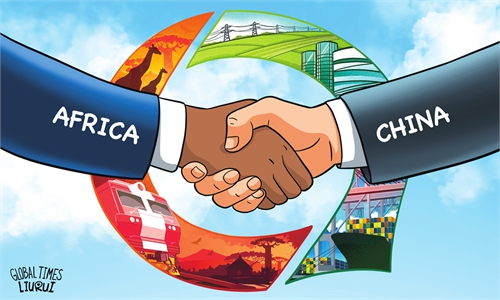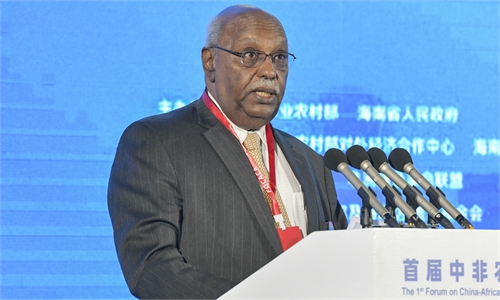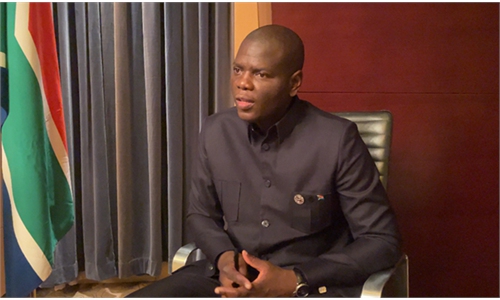Botswana delegate at FOCAC dismisses Western smearing, calls for Chinese expertise in modernizing Africa’s development
Otsile Morake, a PhD student at Jiangsu University from Botswana and President of the Botswana Expatriates in China (BECO), is marking his 11th year in China with a sense of awe. Invited by the government of Botswana to attend this year's Forum on China-Africa Cooperation (FOCAC), Morake reflected on the tremendous changes he has witnessed in China over the past decade during an exclusive interview with the Global Times. He expects China's expertise in modernizing agriculture and building infrastructure on his continent, which could greatly facilitate Africa's economic growth.
Dismissing Western narratives that hyped China is engaging in "neo-colonialism" in Africa, Morake said, "What I'm seeing with my own eyes is that Africa can benefit a lot from China," he said, calling for deepened people-to-people and technological exchanges between the two sides.
Morake first came to East China's Jiangsu Province on October 29, 2013, to pursue his bachelor's degree. Now he is a PhD student majoring in management science and engineering in Jiangsu University. He started a student union for Botswana nationals studying in China in 2015. The number has been growing rapidly.
When asked about the changes that impressed him the most during the 11 years, Morake said the first thing that came to mind is how rapidly technology has advanced - the development of WeChat, Alipay, self-driven cars, electric vehicles, among other innovations.
He also took note of the infrastructure development and agricultural technology advancement, for example, the fertilizer drones and smart monitoring systems implemented in greenhouses.
Looking ahead to the outcomes of the FOCAC, Morake emphasized that the most urgent area for China-Africa cooperation is technology, "We are talking about the internet service, because once you have access to the internet, you can have access to a lot of information and other things," he noted. Agricultural technology cooperation is also a key for the continent's poverty alleviation efforts, where China can assist in modernizing Africa's agricultural equipment.
He added that the exchange should not be limited to engineers and equipment being deployed to Africa and then leave, but rather let the engineers stay there, set up the missions with technology specialists operating the machines so that there will be a flow of technology and a whole industry set up in the continent.
"Another aspect I want to say is I love how Chinese people have kept their own culture and history intact for 5,000 years. I have visited over 30 cities in China, and I have seen how China integrate its history into economy, education system and technology," the Botswana delegate said. "Protecting history shows respect to the people there. So, I think China can also help Africa to protect our culture, and our history."
Addressing Western media's claims about China exerting negative influence on the continent, Morake refuted the accusations, stating, "It's not about what Western people are saying, but what I am seeing. With my 11 years of experience in China, I can confidently say that Africa stands to benefit greatly from China. How China achieved rapid economic growth is something we can learn a lot from," Morake told the Global Times.
"There are so many stories. But when you go to Africa and China, you see a completely different thing," Morake called on people from around the world, especially those who still hold prejudice, to come and see the whole picture with their own eyes instead of hearing it from others.
Discussing his vision for the future, Morake said he plans to return to Botswana to share the knowledge he has gained in China, but at the same time, "be the gateway of communication between the two sides."



